Q&A with MariaElena de la Garza
Executive Director of the Community Action Board of Santa Cruz County
Interviewed by: Darío León, Research and Community Coordinator
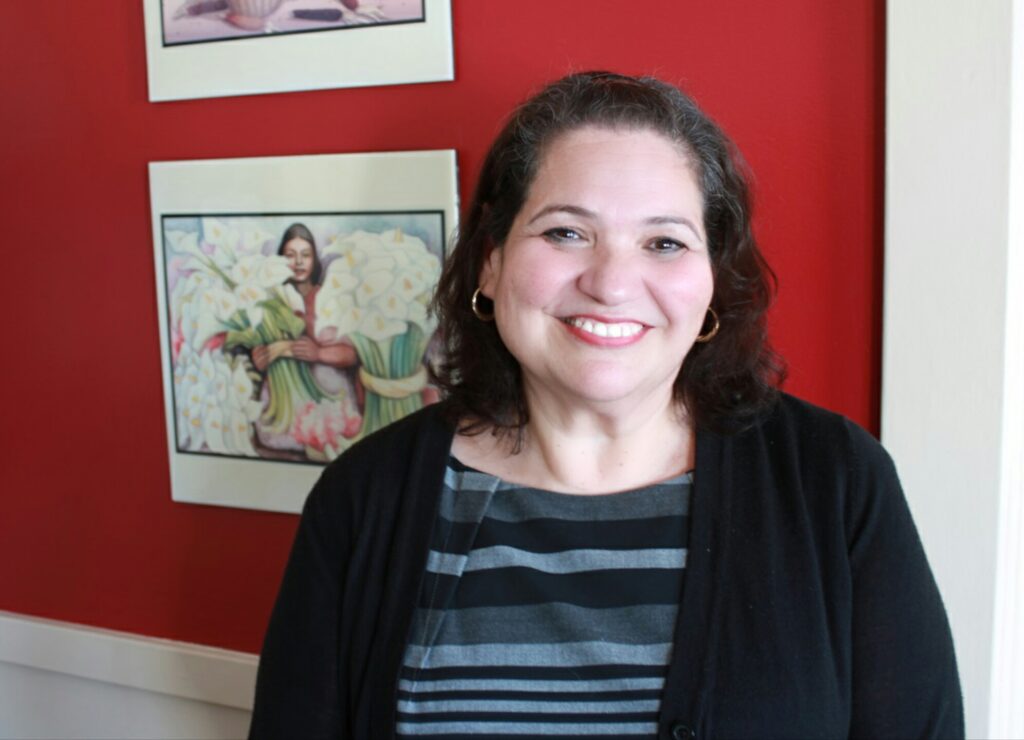
MariaElena De La Garza has over 29 years of experience in nonprofit work and is currently the Executive Director of the Community Action Board of Santa Cruz County. MariaElena has passion for building and supporting community networks, leadership in action, and solution-based strategies. She has years of experience serving on various boards for local and statewide nonprofits. In 2018, MariaElena was awarded the prestigious University of California Santa Cruz Tony Hill Award for her work in social justice and community service.
Please describe Community Action Board (CAB) of Santa Cruz County’s mission?
MariaElena: We exist to eliminate poverty and create social change but we’re different from other non-profits. We are part of state-wide and national networks of community action agencies that were born in 1965 with the War on Poverty. As part of this network, we have some federal mandates. Most importantly, we must have a board of directors that includes low-income voices from the communities that we serve.
What are the major needs, issues and problems facing CAB clients and the local community during COVID-19?
MariaElena: The problems are the same problems that exist without COVID but now they’re exacerbated. We know that our community struggles with housing and rental affordability. We know that there’s not enough affordable housing, but I want to push us to recognize there is not enough low income housing in our communities. There’s not enough access to healthcare. Families need to have access to food and employment including earning a livable wage. All of these issues that our communities face have been exacerbated by COVID-19.
For example, we run a day workers center in Santa Cruz County. Day workers are provided job matches with employers. During the high season, we see 150 to 250 job requests per week. With COVID, we went down to 5 job matches a week. Day workers are usually heads of household, usually parents of children. Imagine that impact, from 200 job opportunities a week to 5 or 6 in the last few weeks.
This is how they pay their rent. This is how they feed their children and sustain their families. All of the sudden there’s no revenue. Everyone’s been hurt by COVID-19. The impact is greater on the vulnerable communities; people who don’t have documents, people who are low wage earners, people who have health issues, people over 65.
How is CAB working to address these needs?
MariaElena: Specifically in the day worker center example, we assessed the impact of COVID-19 and began working with our funding sources. That support has allowed us to bring in funding to help people with rental assistance.
We also are a part of UndocuFund Monterey Bay – a group of agencies that are working together to create a system to provide relief to people who would not be getting stimulus relief from any other means. The federal aid is not helping undocumented families or mixed status families. UndocuFund is working to fill the gap by providing up to $500 per request.
CAB is also responding by pivoting some of our services. We are now providing food distribution at the day worker center and at our Davenport programs. Our homeless serving staff are doing outreach to make sure people have things they need during this time including masks and hygiene products. What’s fascinating to me is that we’ve had people from the community reach out to us. As an example, the señoras are making masks and are giving them to CAB for us to distribute to our clients. We’re just trying to be responsive and get resources to the people that need them the most.
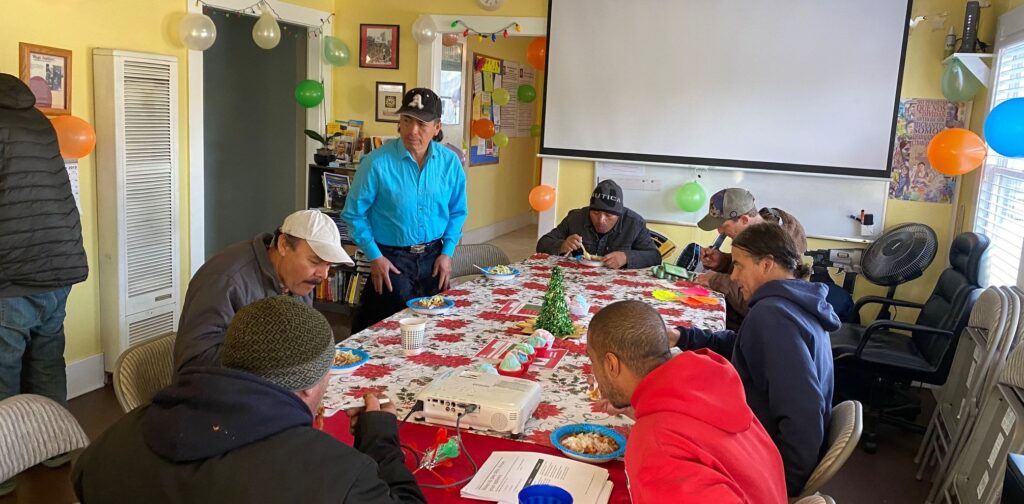
It is my understanding that CAB has worked with UCSC faculty and students. Can you please describe your recent collaborations with UCSC?
MariaElena: We have a long standing relationship with UCSC. We value the partnership. A UCSC professor in Political Science, Eva Betram, is on our board. We believe in providing support to our students that will help prepare them for the real world. For example, UCSC students helped during our community action plan process. There’s no way we could have done that without the UCSC students who transcribed surveys and completed the data crunching and analysis. This work benefited the students because they learned about community assessment. It benefited CAB because we needed the data expertise and support.
Working with CAB can prepare students for this kind of work. This is our future workforce and we need them to know about CAB. We need to know about the students and what they bring and offer to the community. We have students who support our immigration work. They get to job shadow and receive one-on-one training while at the same time rolling up their sleeves and working with the community on immigration. This is valuable experience for an intern and helps CAB increase capacity. It’s a great partnership.
Do you have any advice for students who are interested in working in the non-profit sector?
MariaElena: Volunteer often and volunteer early in your career if you can. I think volunteering is extremely important to understand the work of non-profits. If you are a student, work experience is important. This could include working in the service industry, retail experience, restaurant experience, customer service experience, or working at a bank. All of that is incredibly valuable if you want to work for a non-profit. If you learn to treat a customer well at the bank, you will treat a customer well at the non-profit. You need to understand culturally what the community is like and you need to be linguistically prepared for working in the community. The strongest non-profits reflect the communities that they serve and that has to be at all levels of the agency.
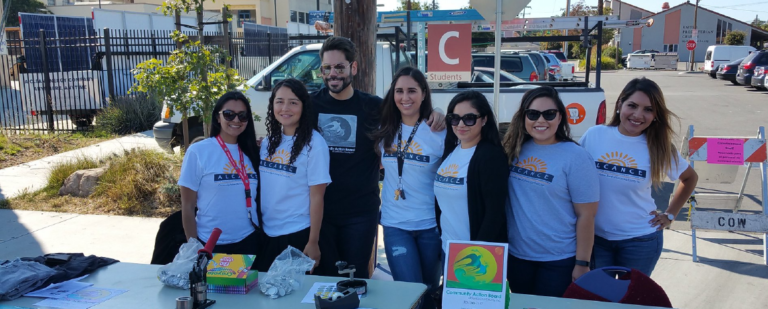
Are there any projects CAB is working on right now or planning in the future that you would like to highlight?
MariaElena: The Thriving Immigrants Initiative is one of our newest initiatives. The anti-immigrant rhetoric that followed the election of the president led to a collaboration between a group of anchor agencies. We are working together so that an immigrant in this county is welcomed and has access to resources and feels part of the community. It’s a new initiative, but it’s timely and incredibly important right now. We provide services and information so that people feel more protected and feel that they know where to go for support. The Thriving Immigrants Initiative agencies answer the red hotline for concerns about ICE. We help answer the call when a family is impacted by immigration. There’s more work that needs to be done for immigrants. We need some smart UCSC volunteers and interns to help us move it forward. You can email Paulina@cabinc.org; if you want to volunteer or learn more.
CAB is working on another new project with a blogger named Vu. He’s kind of a celebrity in the non-profit world (NonprofitAF.com). He has joined with CAB, the Non-profit Quarterly Review and the National Day Labor Organization Network to launch a movement to raise 50 million dollars for day laborers across the nation. Stay tuned for more!
If someone wants to support CAB, how can they go about that? In what ways can they get involved?
MariaElena: If someone is aligned with CAB’s goals and our values, they can volunteer. For young people, especially students, please join our social media platforms on Facebook and Instagram to help push out CAB news and events. It would be fantastic to broaden our reach by engaging with new students.
Another way to support organizations is to donate. Donate a dollar a month or donate 5 dollars every 3 months – every dollar matters. I’m not saying donate to CAB, donate to something that you’re passionate about. Donate to something that you care about.
That’s a great message. Every dollar counts.



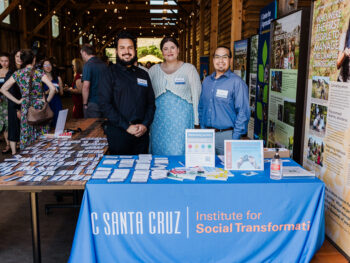
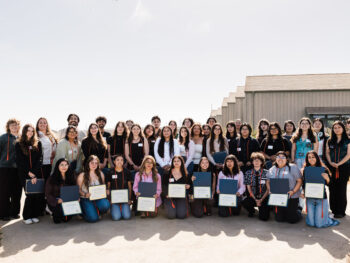
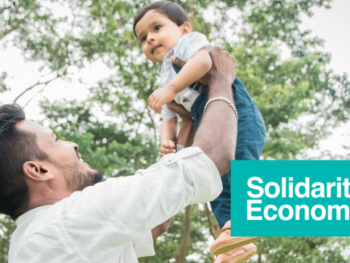
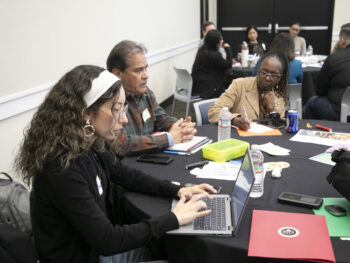
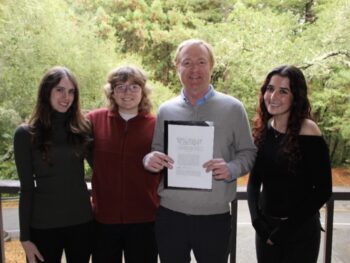
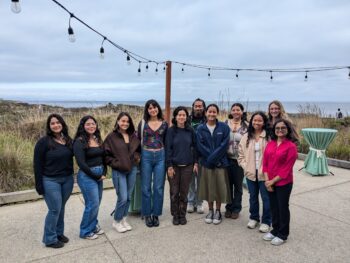
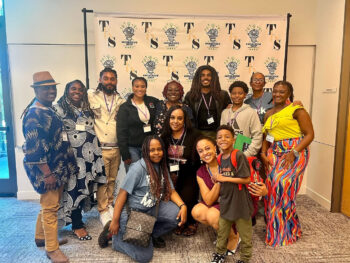
 Contextualizing Coronavirus Geographically
Contextualizing Coronavirus Geographically
